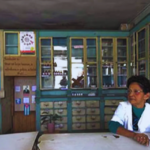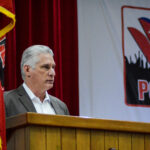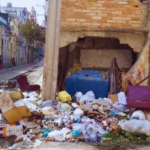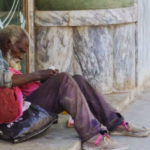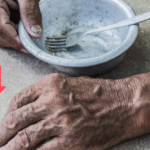Protracted power outages under the sweltering August heat strained the Cuban people’s patience with a ruling oligarchy that alleviates none of their daily hardships, so much that last month the country’s generalized crisis, along with the inept Government management, triggered 361 popular protests, including an eye-catching 49 cacerolazos (pot banging street demonstrations), the Cuban Conflict Observatory says in its latest monthly report. According to the new information released this Thursday the total of protests reported during the target period has been the highest ever on the island, save for 584 protests linked to the massive social unrest of July 2021 (11J).
The OCC’s analysis forAugust describes it as another 11J fragmented into multiple local outbursts independent from each other, of disparate magnitudes and occurring on different days of the month. The State tactic of selectively blocking the Internet service contributed to this result. The OCC points out that, despite the fact that the country’s socioeconomic situation continued to deteriorate, the August number of politically-motivated protests exceeded 61 % to 39 % that of the demonstrations prompted by a social or economic incentive. Along with the cries calling for an end to the blackouts, others of “Freedom! and ¡Patria y Vida!” could be heard, the report remarks.
The August “conflictometer” also highlights a 100 % increase in the number of demonstrations in which the Government was directly accused of mismanagement, from 85 in July to 172 last month. At the same time, protesters have begun to demand not only a change of government, but also system change. Although the 49 cacerolazos ─more than twice as many as those recorded in July (20)─ had the largest media impact, Cuban protests now assume a plurality of formats: collective prayers in public places; grafitti; civic campaigns with flyers and posters; provocative religious services; hackings of official websites and computers of hotels associated with the military-business group GAESA; dramatic denunciations on social media; people quitting their jobs and the non-stop massive migration. Among August’s foremost street demonstrations were those that took place in the city of Nuevitas, province of Camagüey, on August 18 and 19. They were described by Cuba’s independent newspaper 14ymedio as “the largest protest that has occurred in Cuba since 11J”.
The Nuevitas demonstrators, who shouted slogans such as “the people are tired”, were violently repressed and hunted down by Interior Ministry troops brought in from other provinces, because, according to reports, the local-basedones refused to participate. A novelty noted among last month’s shows of discontent was an increase of violent actions, including arson in state recreation centers, stone throwing at dollarized store and state companies windows, as well as physical confrontations with or stone throwing at security forces. In its analytical part, the OCC report points out that most Cuban citizens are now immune to the political propaganda that on State radio, TV, and printed press misrepresents the increasingly distressing experience of their daily life. The authorities’ crisis of legitimacy and credibility sustained a new blow in August with the disaster at the Super Tanker Base by the bay of Matanzas, where three huge fuel tanks exploded one after the other. Along with the collapse of the national energy system, the tragedy exposed the lack of foresight of the leadership and the inefficiency of the governance system. In its conclusions, the Cuban Conflict Observatory anticipates as “very likely” an increase as well as a political radicalization of protests throughout the country in September, given that the citizens despair with their everyday life continues to overcome their fear of retaliation for protesting in public.
The OCC report warns the United States and the European Union that creating expectations among the Castro oligarchy that they could squeeze concessions by keeping unchanged their current governance regime– as it happened with President Obama’s “thaw” policy could only contribute ─under the new and volatile current circumstances─ to encourage their irresponsible political adventurism in the region and to foment conflict, fragility, ungovernability and even political violence on the island.
The Conflict Observatory underlines that protests on the island have not been quelled either by brutal Government crackdowns of the human trafficking operation implemented by the government of the island, along with its Nicaraguan counterpart and the Mexican drug cartels, which by the end of the US fiscal year on September 30 will have squeezed into this country more than 180,000 illegal Cuban immigrants. “To those skeptics who claimed that an insurrectionary episode like that of July 11, 2021 was just an anomaly whose chances of reprise were nothing more than daydreaming, Cuban citizens seem to respond that, from now on, it will always be 11J on the island”, the OCC report rounds off.



